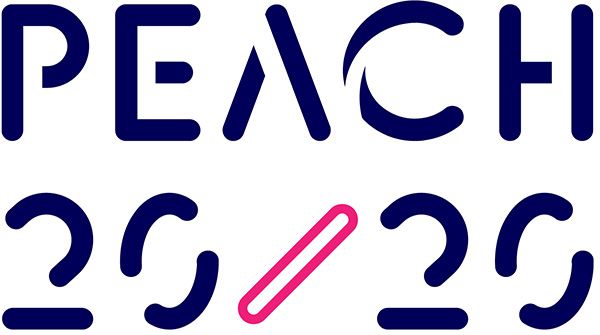Excellence on Every Front
)
What will be the big differentiator between hospitality’s winners and losers over the next year or so?
Financial strength? Deployment of technology, and AI in particular? Retaining and nurturing your top people? A granular understanding of your customers? The cut-through of your marketing?
Or perhaps it will actually come down to how good you are, to put it simply, at hospitality. That sometimes indefinable ability to make people happy.
Just as likely it’s going to be all of the above, and few other things thrown into the pot too.
As the managing director of a regional brewer put it to me the other week, alluding to the Oscar-winning movie: “It’s a case of everything, everywhere, all at once.”
Things may not be quite so surreal as the film’s plot, but the industry is being hit from all sides, often unpredictably. Life is pretty mad.
“We now just have to be really, really good at everything,” said by brewery friend. For businesses there’s no longer any margin for error, there’s no slack in the system.
We all understand it’s going to be tough - and we also know the cliche about that. The ability to focus on every aspect of a business - and to know which levers to pull when - will be crucial. It’s going to be full on.
It was interesting talking to Stonegate’s CEO David McDowall as we sat in one of the company’s newest concepts, Rita’s in Leeds - a self-proclaimed ‘beer hall for cocktail lovers’ in heart of the city. When the NICC announcement hit, he says, the company went into ‘action mode’ doubling down on all aspects of the operation.
Technology is at the heart of much of what Stonegate is developing, from AI-generated phone booking, to an e-commerce platform for beer ordering, to staff scheduling, to sophisticated price tracking and analysis.
But as McDowall says, despite all the tech, he’s still ‘paranoid’ about losing connection with his guests and teams - and that’s why he’s out and about around the business. He talks about paying GMs and area mangers above the market rate (and that won’t change), which is driving long-term tenure. He also says the recruitment of tenants and lessees is becoming more sophisticated, leading to many fewer quitting (a number he gets every week).
David McDowall doesn’t give the impression of being overly ‘paranoid’, but as the well-worn business saying goes ‘only the paranoid succeed’.
What he also talks about is the pace, energy and more entrepreneurial culture that he wants to see injected across the business. The fact that Rita’s took just eight months from conception to opening, rather than spending years in planning and focus groups, is testament to that. Despite the wider focus on data and systems, there’s still a place for just getting on with it.
So you can add urgency and entrepreneurial spirit into the winning mix.
Stonegate is also among the companies optimising their estates, not only shedding sites but switching concepts and operational styles - making assets work harder. One of the consequences of this new high-cost environment is likely to be fewer but better hospitality locations - not only because there will sadly be casualties, but operators will want to get more from less if they can. Decision-making on viability will likely become more ruthless across the sector.
At the same time striking a balance between the human aspects of the business and the move towards more data-driven analysis and automation, not just as a cost-saver but a sales driver, will become more evident.
Having chaired a string of tech-inspired seminar this month, what’s becoming clear is that for most operators tech is not just about making front-line teams more productive but also better looked after. As Tom James, managing director of Bill’s and one of the most tech-savvy bosses in the sector, says, the use of technology has been fundamental in turning around the brand. But the over-riding objective is still about making sure everyone leaves happy. And that includes his teams. Better scheduling and reporting has given his GMs six-hours back to be on the floor every week, he says.
Which brings us back to assessing all those potential differentiators between success and failure. Having financial headroom and resilience is now a given, and while data and technology is being deployed across the sector, at varying speeds it must be admitted, to maximise consumer insight, marketing, scheduling, energy management, even maintenance, and most crucially forecasting, the human factor remains a key ingredient.
It’s usually not hard to see why some businesses fail - obvious cost-cutting, poorly trained and motivated staff, a lack of marketing, zero investment. We see it too often, and know that even without the current pressures many of those operations probably wouldn’t survive for long.
The secrets of great success are sometimes harder to pin down. What turns a good, efficient business into a great one is often down to that elusive magic that comes from genuine hospitality.
Why is it that 3,000 bookable restaurant reservations at The Devonshire, now probably London’s busiest pub, regularly go within 10 minutes of release, or there are always queues to get into Dishoom for breakfast on a Saturday morning? It’s the experience customers know they’ll get, that they’ll be properly looked after, and will leave happy and yearning to return.
In many ways operators have more tools than ever to navigate a course, and to react to events quicker and more decisively. The difference between winners and losers will be about who harnesses all those elements - from the soft intuitive skills of hospitality, to the urgent drive to be better, to the ability to instantly analyse the lines of data flashing on their smart phones.
As the bulk of the bosses I speak to know, it’s about focusing on everything, everywhere, all at once. A tough call.
A version of this article first appeared in MCA.


